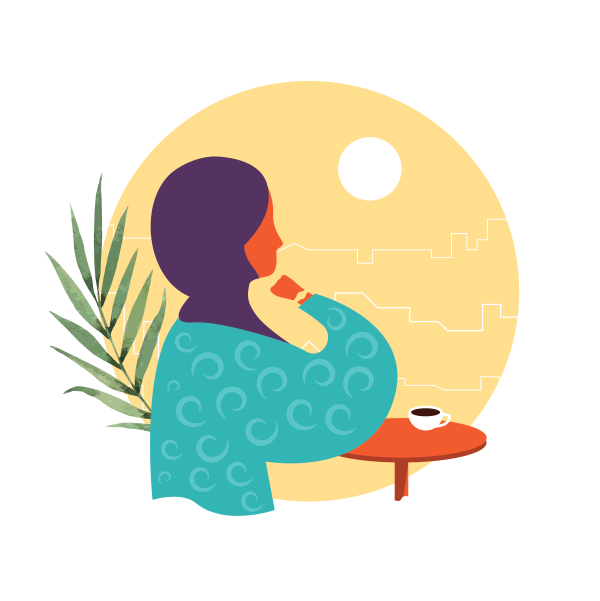
Thank you! You should receive an email asking you to confirm your subscription.
Oops! Something went wrong while submitting the form.
October 6, 2023

When local feminist and women’s rights organizations start mobilizing communities to defend human and environmental rights, they challenge deeply rooted patriarchal social norms.
To illustrate some of the pathways to normative shifts connected to achieving SDG5 on gender equality, ImpactMapper hosted a webinar on “The importance of Investing in Feminist Movement Building for Justice” which featured examples from Tanzania, Haiti, and Bangladesh. Across these countries, common themes arose across organizations in terms of land rights and ownership and shifting power.
Land grabbing is a constant threat in Northern Tanzania where the Pastoral Women’s Council has provided economic empowerment and education programs to over 6,000 women over the last 20 years.
The organization’s work in the region has helped shift the role and ownership rights of local women since traditional social norms did not allow them to own land.
Land grabbing has been increasing from government-backed investments and foreign buyers seeking to engage in wildlife conservation programs. The PWC Deputy Program Manager, Namnyak Sinandei said for pastoralists livestock and land “goes beyond just the commercial value”-- This is their lives and livelihoods. Women are often at the frontline defending their land.
With an estimate of 100 public forums, the PWC is facilitating women’s rights leadership training and discussions to hold positions of power at the local level when previously it was not a cultural norm for them to be able to do so.
“Now we are seeing women stand up, demonstrate peacefully, and sit to meet high government officials. They're confident enough to actually stand up and say, ‘This is our land, we need it to remain with us and not with some really wealthy investor.’ Sinandei said. “More than 3,000 women are sensitized to advocate and defend their rights, to advocate and defend for the rights of other women, but of course, to advocate for the rights of their communities. And this has been very important with the ongoing land struggles” she added.
Similar to Tanzania, land ownership, inheritance, and recognition are common issues that women in Bangladesh also experience. These issues are even more pronounced based on class and other social realities, such as migrant status.
The Badabon Sangho organization has helped develop programs to support Dalit women’s rights, women’s migrant worker’s rights, and land, agriculture, and water body rights.
The lack of recognition of Dalit women in society and their prohibition from inheriting or owning the land of their fathers or male family members are all examples of patriarchal social norms that the organization is working on unraveling through their leadership, advocacy, organizing, and legal support work.
By providing them with leadership training and community organizing opportunities, Badabon Sangho’s Executive Director, Lipi Rahman said that women started to chat about the land issues they were having, including corporations stealing their lands. Some women began to form groups to organize protests and demand their lands back from big corporations.
Rahman shared an example of a woman whose land was grabbed by a large corporation. She was barred from entering her house as the company had placed barbed wire around her property. Outraged, some women who were part of the groups protested, raised visibility of the issue, and got the police involved. They fought and protested for a week. Ultimately their efforts were successful, the company removed the barbed wire and was required to pay the woman for her land.
“This association is one of the key successes where women fisherfolk created a platform to act and demand their rights at the Bay of Bengal. The association is holding a movement to protect their water bodies and livelihoods from the giant companies,” Rahman said.
In southern Haiti, Beyond Borders leads programs to address the root causes of gender-based violence and power imbalances between men and women. One social norm that is slowly changing through their work implementing the SASA Together program, which offers conversational models for exploring power, is the division of household chores between spouses and the shared decision-making process in the household.
A recent evaluation reported: “ Compared to baseline, at endline women in La Vallée there was a 16% decrease in women agreeing that diapering, bathing, and feeding children is mainly the mother’s responsibility; a 21% decrease in agreement that a women’s role is taking care of her home and family; and a 10% decrease in agreement that men have the final say on decisions in the household....At baseline only about 60% of women thought that boys should spend as much time as girls doing household chores - which increased to 75% at endline. The percent of people who agree that girls should be allowed to socialize outside the home just as boys do rose from 15% to 28%, indicating an increased willingness to allow girls freedom to learn and explore.”
Before the organization’s preventive and intervention approaches to communities, women were more often seen as responsible for the household and unpaid care work. Throughout the years there have been changes in some men, increasing their household roles, such as taking care of the children, and household chores, such as cooking and cleaning.
The organization’s Violence Against Women and Girls Prevention Specialist, Sara Siebert, said the impact of their work has opened pathways to welcome the participation of women in public spheres.
“They can participate in a meeting without the permission of the husband because before they needed the permission of their husband but of course, they didn't even have time and the husband would say ‘well, what about the work that needs to be done in the house?’ But today men are pushing women to participate,” Siebert said.
-
#feministfunding #philanthropy #impactinvesting #genderlensinvesting #genderequality #sdgs #sdg5 @impactmapper